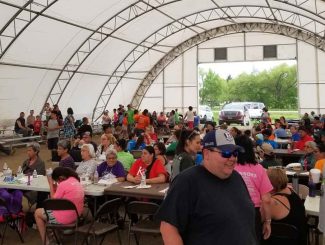Bill Tointon is a Senior Planner at WSB focusing on our Land Development efforts in Rochester.
Throughout his career, Bill has been involved in the design of approximately 25,000 acres of land for residential, commercial, industrial and redevelopment projects. He has served the Rochester community with their land development needs for 50 years.
Q: Congratulations on 50 years! When you reflect on your career to date, what stands out as the most memorable or impactful moment?
A: I would say the most significant part of my career is that I was able to maintain a 96 percent ratio of success in obtaining project approvals from governmental political bodies including city councils, county boards, planning commissions, environmental boards, and township boards.
It’s difficult for me to highlight one specific memorable project since they have all impacted me in different ways. If I had to choose I would say working on the Mayo Woodland project definitely stands out. It took three years to approve special zoning to complete the project. Once approved, it was featured in the New York Times and on the Paul Harvey News. The media called it an innovative project in America’s heartland and it involved the heirs of the world-famous Mayo family, often called America’s physicians.
Q: Is there something you wish you would’ve known when you first started that you learned during your career?
A: It takes a significant level of effort to be successful in the practice of private development – more than I had expected. It’s important to be optimistic, place emphasis on accuracy, and also be very articulate. I often say to colleagues, “Being 90 percent accurate is not a passing grade in the private development industry.”
Q: How have you seen the industry change over the last 50 years?
A: I would say the largest change that I’ve noticed is the continual decrease in the number of private development firms and individuals that are willing to take on the risks associated with this industry. Throughout the last five decades, I’ve experienced all stages of the economic cycle. The companies that have survived these cyclical changes have good investors or have been very fiscally responsible.
Q: How have you changed over the last 50 years?
A: Over the years I’ve realized how important relationship building is. When you’re working with clients, you’re not just doing a “job.” Elements of our business can be incredibly personal. I’ve been lucky to build longstanding relationships with clients and colleagues throughout the years. I didn’t realize how important this was when I first started out.
Q: In what direction do you see this industry heading?
A: The private development industry players are constantly changing. Unfortunately, the clients you have today may not be in business five or ten years in the future. The level of sophistication in the industry is increasing along with the acceptance and understanding that modern technology is the new normal. Lately, I’ve noticed a shift into private developers focusing on more niche markets. I think the future looks bright for private development. I’ve witnessed many changes throughout the years – some bad, but most good.
Q: How has the Rochester community impacted your professional career?
A: The diversity of the Rochester community has allowed me to broaden my career and be more innovative when applying new design criteria. What’s unique about the community is how involved and hands-on the governmental bodies are here. They often participate in design critiques and really embrace new ideas and creativity.
Q: You’ve worked on several projects in Rochester throughout your career. What has surprised you about the changing landscape?
A: The city has surprised me. It’s changed so much. Rochester went from a small size community in the heartland of the Midwest to a metropolitan city center with high-rises and a booming downtown. The economic momentum here is motivating. It’s been impressive to witness.
Q: What advice would you give someone who is new to our industry?
A: The best advice I can give someone entering this industry is to be persistent in your approach to problem solving and don’t take no for an answer. Create your own style and embrace it. I would also tell them that teamwork is necessary and not an option. Surround yourself with people you trust and that you can depend on. It will make your career enjoyable and give you tremendous support.

